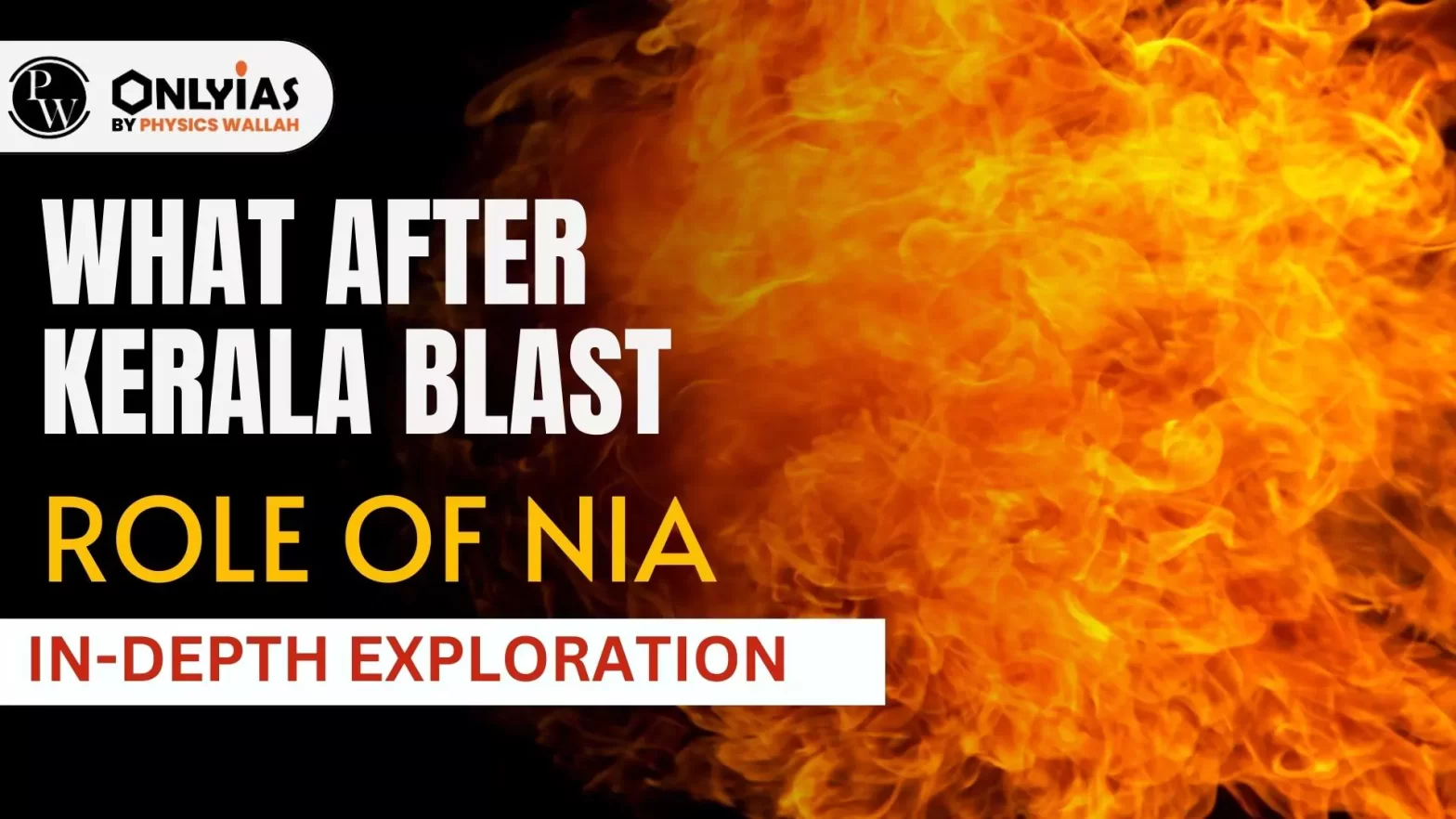Context: The Union Home Minister directed the National Investigation Agency (NIA) and National Security Guard to commence a probe into the recent Kerala Blast at a Kochi convention centre that killed one individual and left 36 others injured.

Context: The Union Home Minister directed the National Investigation Agency (NIA) and National Security Guard to commence a probe into the recent Kerala Blast at a Kochi convention centre that killed one individual and left 36 others injured.
Scheduled Offences
|
|---|
| Must Read | |
| NCERT Notes For UPSC | UPSC Daily Current Affairs |
| UPSC Blogs | UPSC Daily Editorials |
| Daily Current Affairs Quiz | Daily Main Answer Writing |
| UPSC Mains Previous Year Papers | UPSC Test Series 2024 |
The NIA is a central agency tasked with investigating and prosecuting offenses that affect India's sovereignty, security, and integrity, including terrorist activities.
The NIA was established to conduct thorough investigations, uphold the legal framework, protect human rights, and ensure expeditious trials in cases related to terrorism and other scheduled offenses.
The NIA has jurisdiction over the entire country, including Indian citizens outside the country, as well as persons in the service of the government and those on Indian-registered ships and aircraft, irrespective of their location.
The recent amendments to the NIA Act expanded the NIA's investigative authority to include offenses like human trafficking, cyber-terrorism, and counterfeit currency, bolstering its role in strengthening national security.
The NSG is an elite special forces unit that primarily focuses on countering terrorist activities and providing security against internal disturbances, with a close protection force protocol for VIPs under its watch.

<div class="new-fform">
</div>